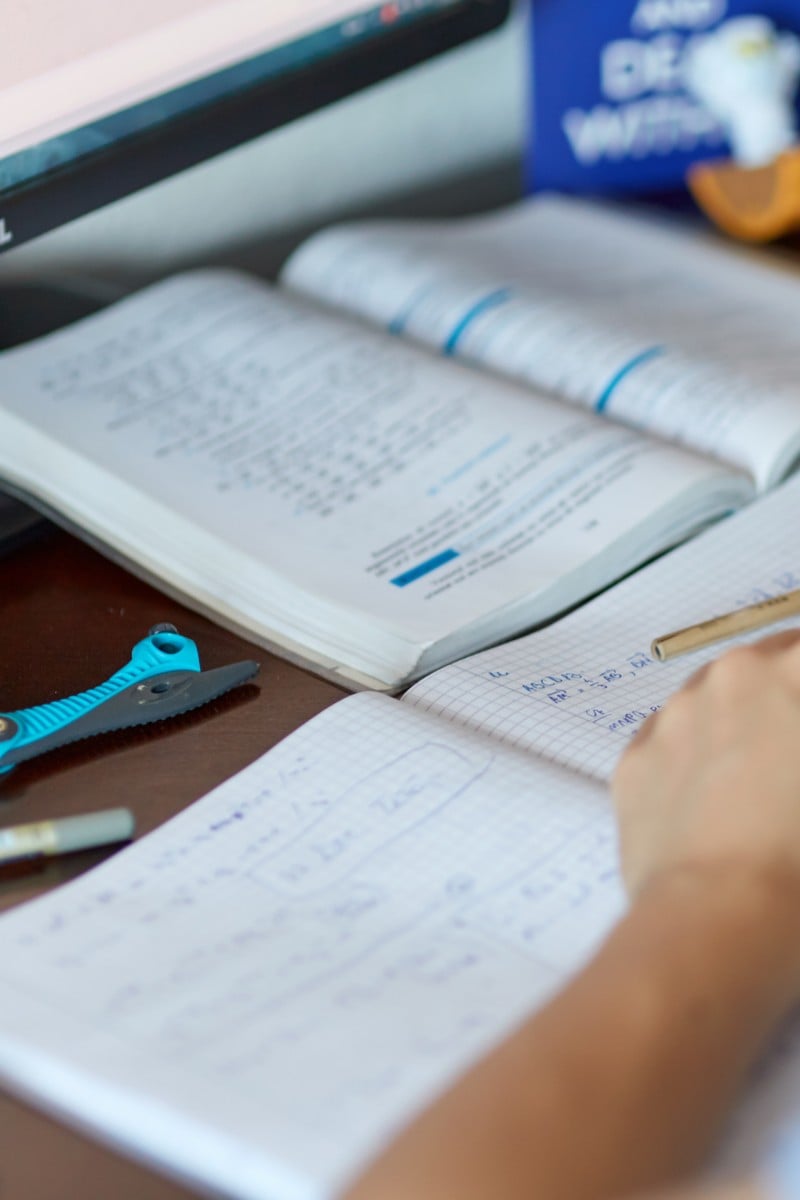
Homework can be bad for your mental health. Should we get rid of it?
- Teachers are taking to social media apps like TikTok to take a stand against the idea
- Heavy workloads can be extra stressful for students, especially during the Covid-19 pandemic
 We’re getting tired just watching someone else do homework.
We’re getting tired just watching someone else do homework.It’s no secret that homework can be a pain. And as students grapple with an ongoing pandemic that has had a wide-range of mental health impacts, is it time schools start listening to their pleas about their workloads?
Some teachers are turning to social media to take a stand against homework.
Tiktok user @misguided.teacher says he doesn’t assign it because the “whole premise of homework is flawed.”
Do students need homework to learn?
For starters, he says he can’t grade work on “even playing fields” when students’ home environments can be vastly different.
“Even students who go home to a peaceful house, do they really want to spend their time on busy work? Because typically that’s what a lot of homework is, it’s busy work,” he says in the video that has garnered 1.6 million likes. “You only get one year to be 7, you only got one year to be 10, you only get one year to be 16, 18.”
Mental health experts agree heavy work loads have the potential do more harm than good for students, especially when taking into account the impacts of the pandemic. But they also say the answer may not be to eliminate homework altogether.
Chinese schoolgirl uses robot to do her homework
Emmy Kang, mental health counselor at Humantold, says studies have shown heavy workloads can be “detrimental” for students and cause a “big impact on their mental, physical and emotional health.”
“More than half of students say that homework is their primary source of stress, and we know what stress can do on our bodies,” she says, adding that staying up late to finish assignments also leads to disrupted sleep and exhaustion.
Cynthia Catchings, a licensed clinical social worker and therapist at Talkspace, says heavy workloads can also cause serious mental health problems in the long run, like anxiety and depression.
And for all the distress homework causes, it’s not as useful as many may think, says Dr. Nicholas Kardaras, a psychologist and CEO of Omega Recovery treatment center.
“The research shows that there’s really limited benefit of homework for elementary age students, that really the school work should be contained in the classroom,” he says.
For older students, Kang says homework benefits plateau at about two hours per night.
Should Hong Kong introduce a zero-homework policy?
“Most students, especially at these high-achieving schools, they’re doing a minimum of three hours, and it’s taking away time from their friends from their families, their extracurricular activities. And these are all very important things for a person’s mental and emotional health.”
Catchings, who taught Primary Three to Secondary 6 for 12 years, says she’s seen the positive effects of a no homework policy while working with students abroad.
“Not having homework was something that I always admired from French students (and) French schools, because that helped students really have time off and disconnect from school,” she says.
The answer may not be to eliminate homework completely, but to be more mindful of the type of work students go home with, suggests Kang, who was a secondary school teacher for 10 years.
“I don’t think (we) should scrap homework, I think we should scrap meaningless, purposeless, busy work-type homework. That’s something that needs to be scrapped entirely,” she says, encouraging teachers to be thoughtful and consider the amount of time it would take for students to complete assignments.